
Swiss cabinet elections can still stir emotions and surprises
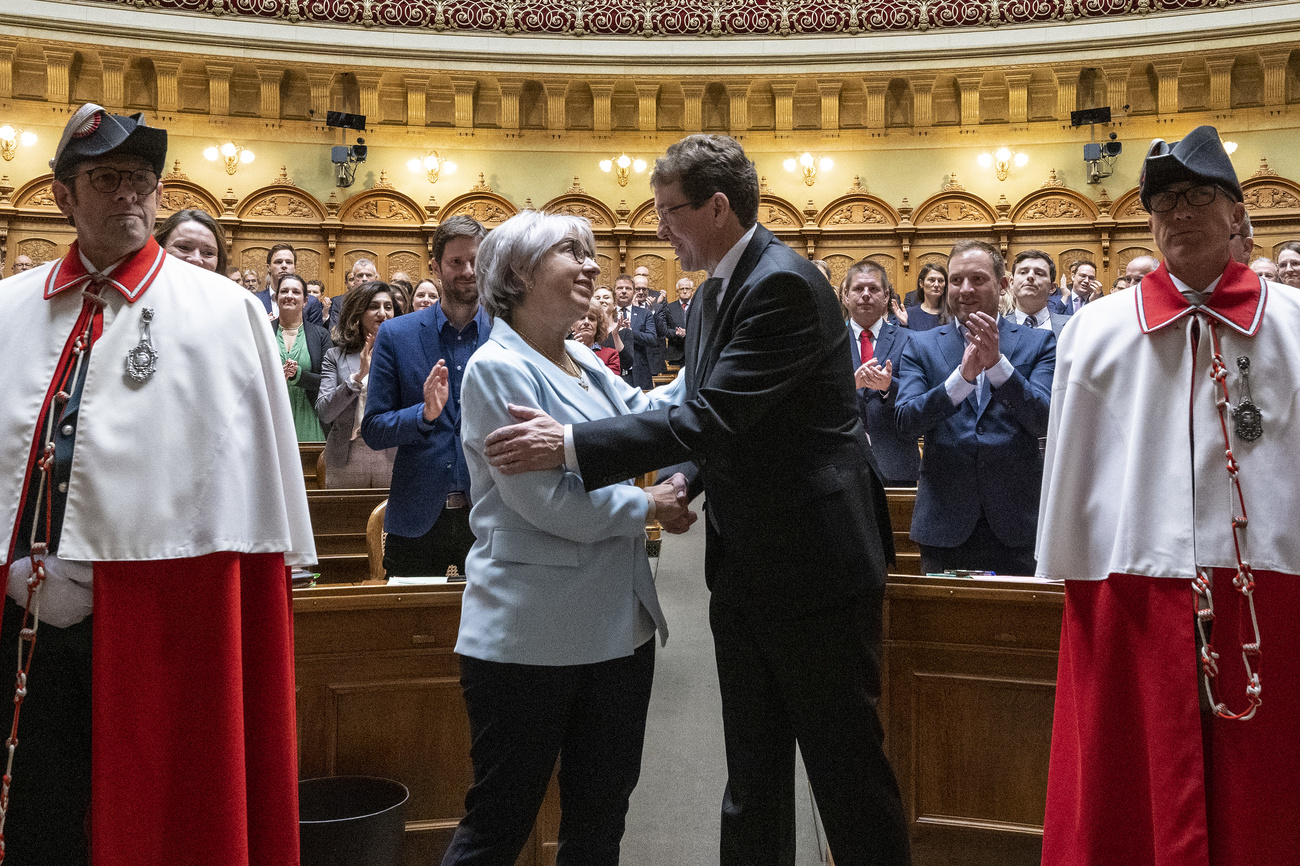
It may remain a mystery for an outside observer why the election of a Swiss government minister draws so much public attention. Here are some impressions from Wednesday’s events, from inside and around parliament building in Bern.
It’s still dark and quiet when the politicians from the House of Representatives and the Senate arrive on Wednesday morning for the ongoing winter session. The hill outside the capital is hidden behind a veil of wintry mist – a day like any other in December. Almost.
An unusual number of vehicles from the public broadcaster are parked near Parliament Square and aren’t there more security staff around. What’s the fuss about?
A possible answer come sooner than expected, shortly after 8am, in the farewell speech by the outgoing Swiss finance minister to the joint session of both parliamentary chambers.
“Today is an important day for Switzerland. You will elect the 120th and the 121st member of the government in the 174-year history of our country,” Ueli Maurer says.
He puts the slow-moving figures in the context of fast-moving events in the wider world and praises Switzerland’s unique political system and its stability. Transport Minister Simonetta Sommaruga, who like Maurer is also stepping down at the end of the year, completes the picture.
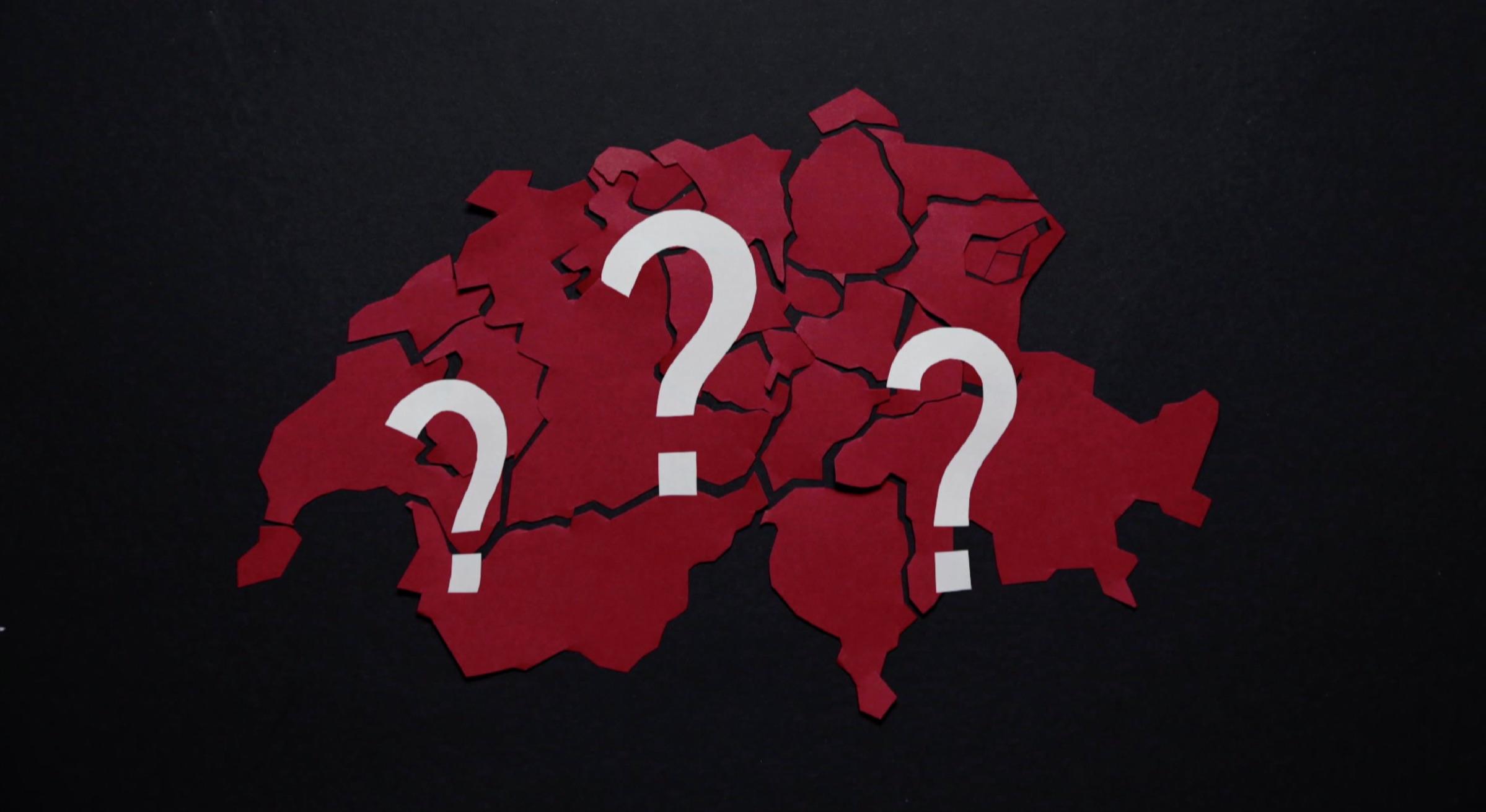
More
How are Swiss government members elected?
Consensus and power
It’s hard to imagine that two people with such frequently divergent opinions than Maurer and her could be represented in the same government, Sommaruga says.
The executive, based on a consensus model, is not led by a prime minister or one particular party, while the post of president is largely ceremonial and rotates every year among the seven members.
Georg Lutz, a political scientist from the University of Lausanne, uses more sober language to sum up the ministerial statements, which were expressed with emotional flourish given the festive occasion.
“The government is a collegial body, and its members still have considerable power,” says Lutz. “The choice of a new minister is therefore of great importance, and has a long-lasting impact. Therefore, there is huge interest by the media in an election.”
There is no such thing as a Swiss government forced to resign and it’s extremely rare for Swiss ministers to be voted out, unlike in other countries around the world.
“As a result, the government enjoys broad public support and people can also strongly identify with individual members,” he says.
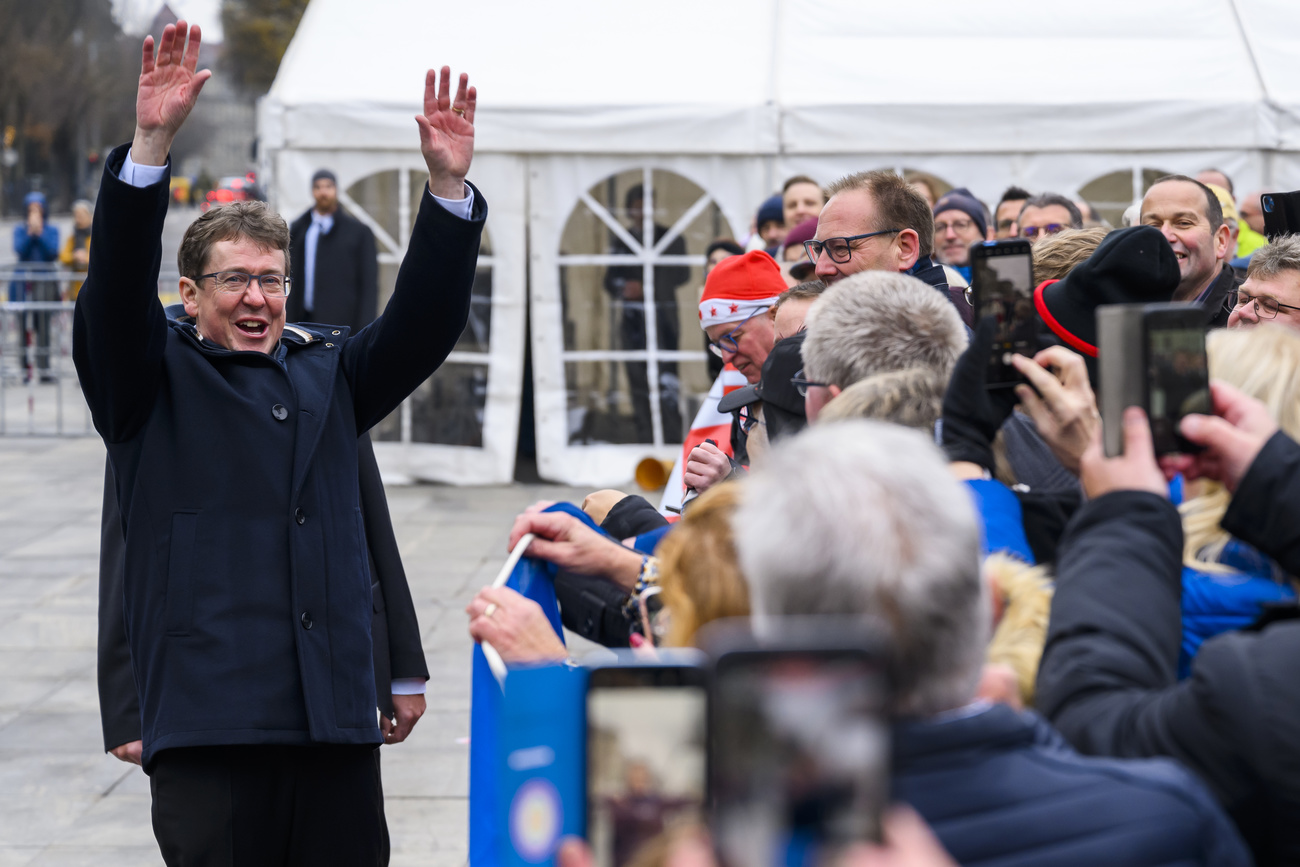
Multi-lingual
The lobby of the parliament chamber is getting busy now with scores of observers following the election proceedings in front of the numerous TV screens; Experts and journalists are also commenting live.
Shortly after 9am, about an hour after the opening of Wednesday’s session, the house speaker, Martin Candinas, announces the result of the first election. He uses all four Swiss national languages, beginning in his native Romansh (spoken only by a tiny minority in the country), before switching to German, French and Italian.
Albert Rösti, the newly-elected representative of the right-wing Swiss People’s Party, raises his arms like a champion boxer, a somewhat boyish smile on his face. So far, everything seems to be going according to expectations.
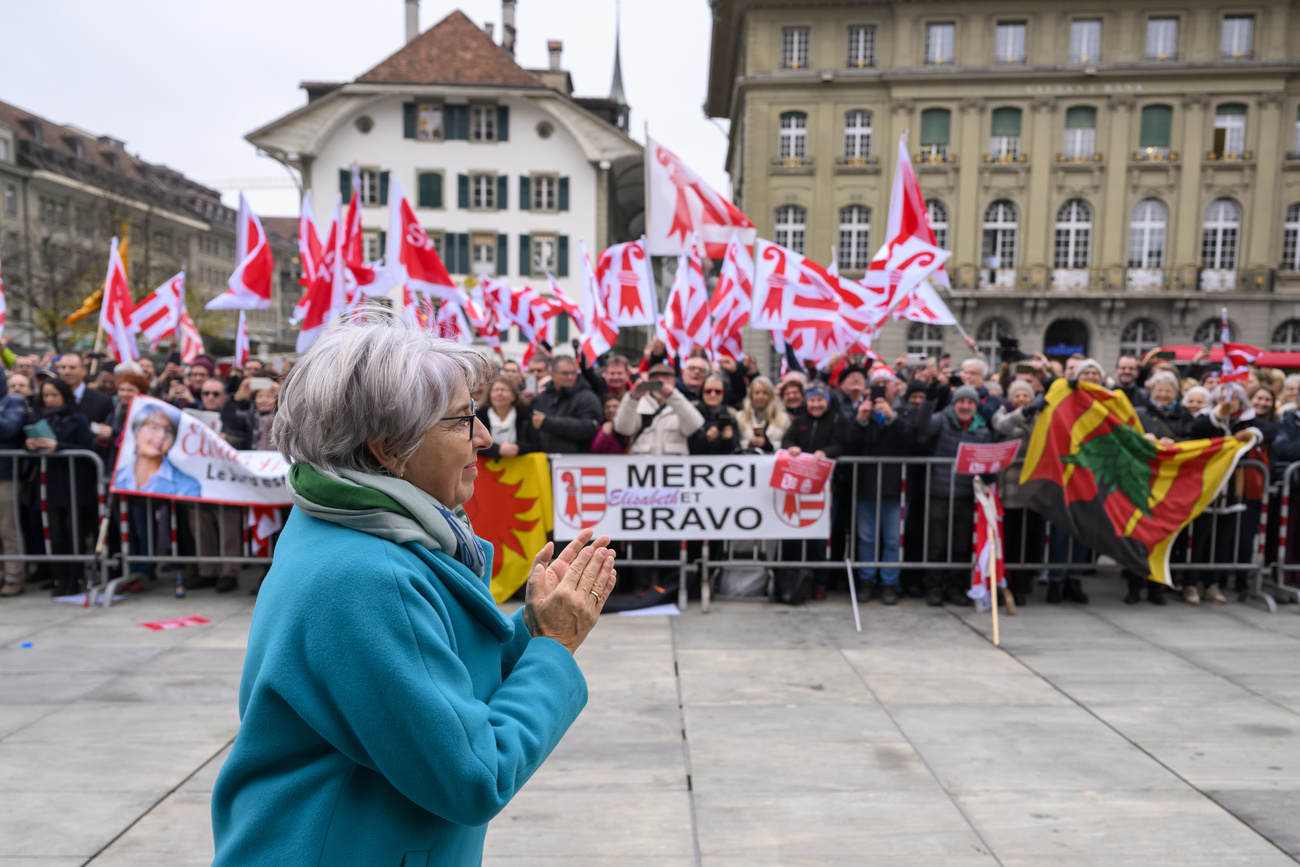
Several rounds
The second election, however, promises to be more difficult. Pundits say it might take several voting rounds for parliament to decide between the slight favourite, Eva Herzog, and her competitor Elisabeth Baume-Schneider – both senators and experienced politicians in cantonal governments, and both members of the left-wing Social Democratic Party.
Outside parliament, about 250 supporters of Baume-Schneider from the French-speaking north-western Switzerland, have gathered. They brandish banners, bottles of white wine go round, but the skies are overcast and there’s no sign of the sun.
A non-governmental democracy group has organised a public event not far away in a converted tower in the old part of Bern’s historic centre. The participants, there to follow the results, are mostly younger people with a specific interest in politics.
But cabinet elections are not only an event for nerds as a glimpse inside a nearby restaurant reveals. A dozen people have pulled chairs in front of the TV screen and seem to be watching the spectacle too.
It all seems to confirm what has been described as a paradox of the Swiss political system: “The government is not elected by the people but people are highly interested in elections.”
Suspense
It’s 9:43 when the first round of the second ministerial election ends without a clear winner, and the same thing happens again 19 minutes later. The political scientist at the democracy group event confidently predicts victory for Herzog in one of the next rounds.
But a surprise is lying in wait for the public and more than just a few parliament members alike. Respecting the protocol, the house speaker rattles off the information about ballot sheets handed out and counted, the number of empty and invalid sheets, the figure for the absolute majority required – and all that in four languages.
The suspense is getting unbearable. Then: “Elegida ei cun 123 vuschs (You have elected with 123 votes)…. – pause – Elisabeth Baume-Schneider,” he says in Romansh. She won seven votes more than Herzog.
A moment of silence, disbelief, shock, then cries of joy. The supporters outside parliament are laughing and singing in an atmosphere of pure delight.
It’s harder to read the faces of many of the journalists, TV crews and politicians milling around the settees and potted plants in the parliament lobby.
Some say they saw it all coming, others still seem stunned by the upset. What does it mean for the government, for the political parties, for next year’s general elections?
The table is set for speculation and critics say there’s nothing the media like to do more than trying to read the crystal ball.
These events showed that government elections can still be fascinating, even for seasoned journalists and on grey day like Wednesday.
About 130 journalists were granted special accreditation to follow the cabinet elections in parliament.
The figure is slightly lower than at a previous cabinet election in 2018, according to the parliamentary services.
No foreign media requested access to the parliament building to cover the event on Wednesday.
However, a number of foreign diplomats to Switzerland followed the elections from the spectators’ stands.
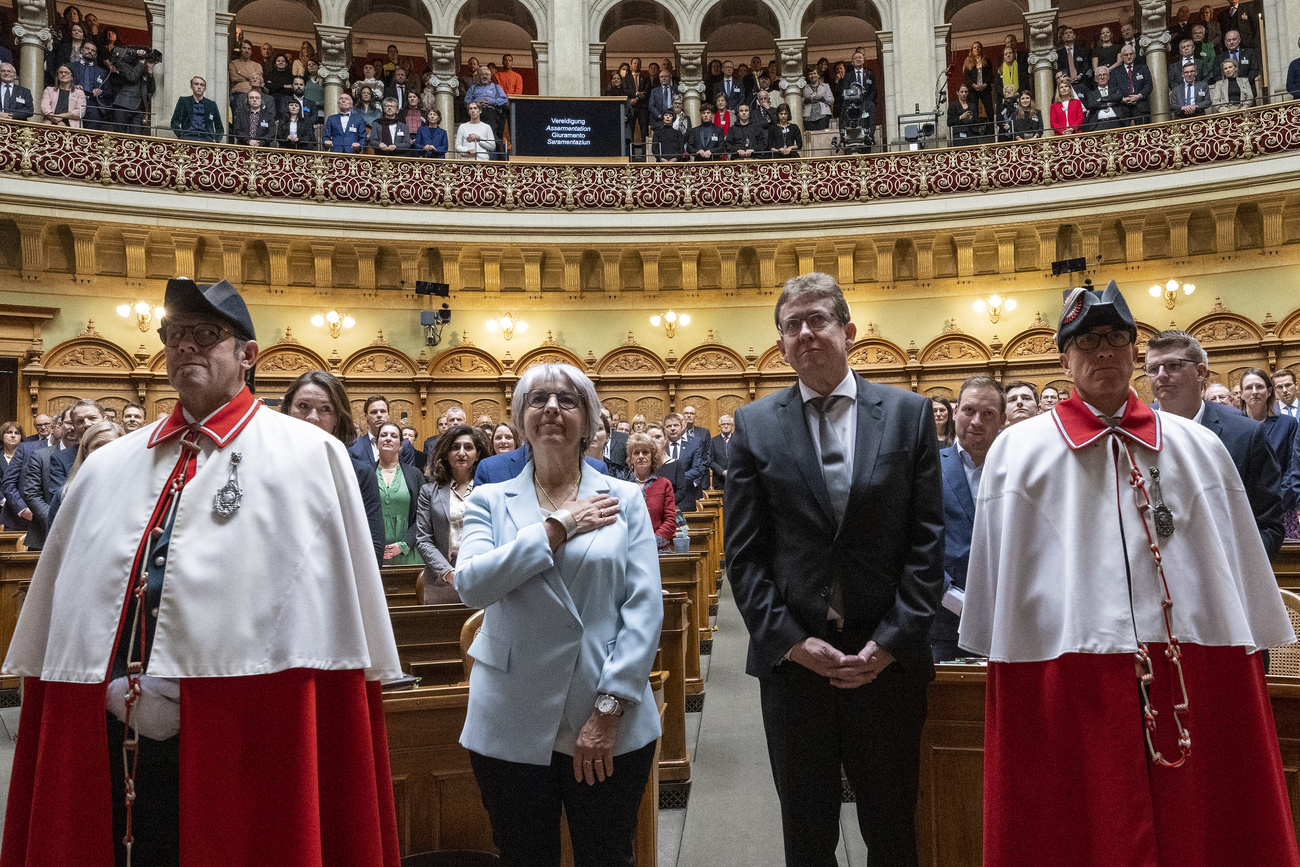
More
New Swiss government ministers elected to office

In compliance with the JTI standards
More: SWI swissinfo.ch certified by the Journalism Trust Initiative






























You can find an overview of ongoing debates with our journalists here . Please join us!
If you want to start a conversation about a topic raised in this article or want to report factual errors, email us at english@swissinfo.ch.